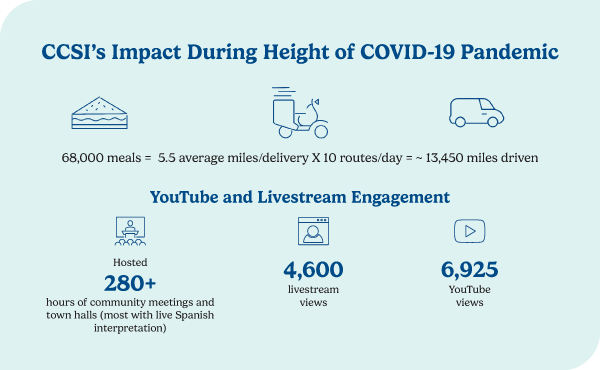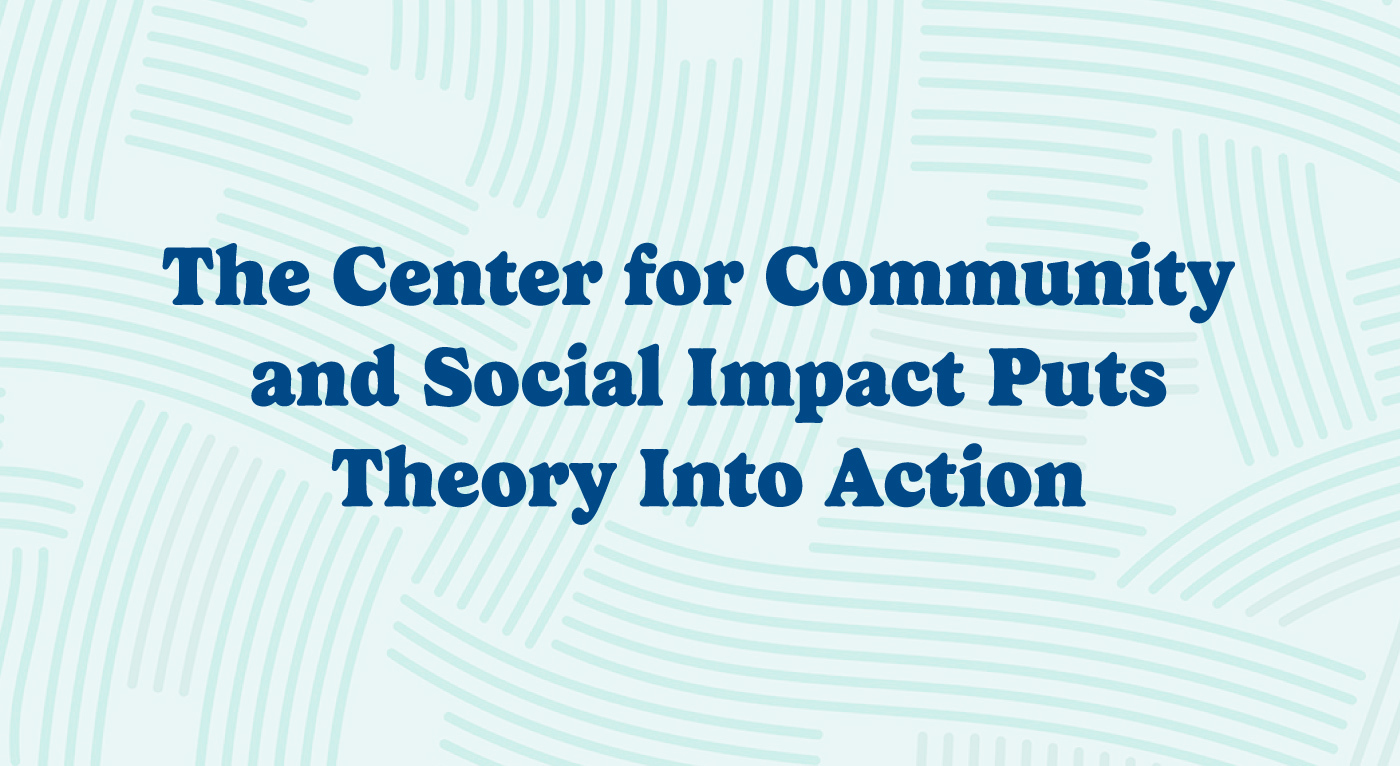The Center for Community and Social Impact (CCSI) was established in 2018 with the goal of creating working relationships with a number of partners, including the Pasadena Unified School District (PUSD) and Collaborate PASadena, a city initiative that had lost half of its funding and was brought into CCSI at the request of the mayor of Pasadena. In the first two years of the center’s operation, the staff was busy establishing partnerships, identifying applied research opportunities, and standing up student success coaches to engage students who were struggling with school.
“Then COVID-19 hit, and everything went out the window,” says Geoff Albert, MFA, a PUSD parent, community organizer, and currently director of community engagement at CCSI, where he’s worked for four years. “We literally had just hired three people for the Student Success Collaborative. They showed up for one day of work, and then the college closed its doors. But because we were a small, really close team, we were able to pivot really quickly.”
The CCSI staff spent the next year addressing direct needs in the community: getting food and supplies to families and helping families find resources to pay bills. Albert says he used skills from his previous occupations as a computer programmer and as a taxi driver to coordinate volunteers and matchup the school kitchens with the nonprofits and the churches who knew which families needed food, as well as create maps for new drivers who went out every morning. “It was an 18-hour day, seven days a week for about a year,” Albert says. He estimates they delivered 68,000 meals for families during that time.
Another important part of CCSI’s effort during the pandemic was disseminating information to the community. The center held town hall meetings that were broadcast on public access TV and livestreamed on YouTube. Public meetings on school matters had been held in the past but thanks to technology and bilingual interpreters, many parents could be present and follow the proceedings in ways they hadn’t before.

“We got a lot of information that we were able to use as things opened up,” Albert says. “COVID-19 exposed vast inequities, systemic racism, and income inequality.” In the Pasadena Unified School District, only about half the students that live in the community go to public schools. The other half attend private or charter schools. When Albert’s family moved into the area, they were told to save their money to send their daughter to private school. “To me, that wasn’t an option,” he says. “I believe that if the schools are not good enough for my kid, I’d better make the schools good enough for all kids.”
The return of students to school during the pandemic allowed the center staff to refocus on its core priorities, including community-oriented research projects. “A lot of what came out of COVID-19 were things we were positioned to do because we had resources here to really look at the data.” Albert says, “I could go back to our faculty and our staff and say, ‘Give me information, and then I’ll bring that to the community.’” One such project focused on the disproportionate percentage of Black elementary school student suspensions immediately following a return to in-person learning. The center presented the data they had collected to the school district and the policy was changed. In another effort, project coordinator Juan Rivas surveyed LGBTQIA+ student groups to determine policy priorities for group action.
The Student Success Program of strength-based coaching to students and families went from an on-ground model to an online model very quickly and now offers both options. Senior success coach and Master of Social Work degree candidate Evelyn Mendez says, “We support kids by showing them new skills and tools to help them succeed—time management, communication skills, self-advocacy, support for academic achievement, help to establish norms with families, even work on setting healthy boundaries.”
A team of faculty working through the center created CHAMP (Community Health Action Mental Perseverance), which was featured in the New York Times. The program was developed by Giovanni Hortua, Ph.D., adjunct faculty in academic affairs, and Camille Huggins, Ph.D., professor of social work at Pacific Oaks. The program, which was first rolled out at Norma Coombs Elementary School in Pasadena, is designed to give voice to parents who she says “can’t afford to grieve” because they had to take care of their families, go to work, or look for employment when so many workplaces were shuttered. Both Dr. Huggins and Dr. Hortua experienced the loss of close family members but did not feel they could take the time to take stock of their losses.
Going forward, Vice President of Partnership Development and Advancement Judy Castro, Ed.D., says, “When it comes to policy in the city, I would like to hear everyone ask, ‘Is the CCSI involved?’ because of the background and experience that the team has, the commitment that they have, and the changes they’re making.”
For Albert, having CCSI positioned within Pacific Oaks provides crucial advantages. “Instead of being a small nonprofit in the area that’s doing good work,” he says, “we’re a hub that’s harnessing all the talent and skills at Pacific Oaks, including faculty, students, and staff, and we’re bringing that out into the community.”
Learn more about Pacific Oaks College
If you would like to learn more about the academic programs available at Pacific Oaks, fill out the form below to request more information, or you can apply today through our application portal.

